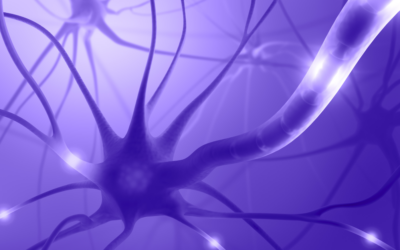Bloating after every meal. That stubborn constipation that just won’t budge. Or maybe it’s the opposite: frequent, urgent trips to the bathroom that leave you wondering what on earth is going on. You might be feeling tired for no reason, noticing changes in your skin, or dealing with mood swings you can’t explain. While these symptoms may seem unrelated, they often have one thing in common: your gut health. Many people live with gut issues for years without realizing the underlying cause. Sometimes, the key to understanding these mysteries lies in looking more closely at what your digestive system is producing—yes, we’re talking about your stool.
1. Persistent Digestive Symptoms
Ongoing bloating, diarrhea, constipation, or abdominal discomfort may point to underlying issues like dysbiosis, inflammation, infections, or malabsorption. These troubles often motivate functional-minded clinicians to recommend stool testing as a window into root causes, not just symptoms.
2. Signs of Intestinal Inflammation
If you’re seeing blood in your stool, or experiencing frequent urgency or pain, markers like fecal calprotectin can help distinguish inflammatory bowel disease (like Crohn’s or ulcerative colitis) from functional symptoms.
3. Unexplained Skin, Mood, or Metabolic Issues
The gut often speaks through other systems, like eczema, acne, brain fog, low mood, stubborn weight issues, or metabolic symptoms, which may all be linked to gut imbalance. Functional stool testing can reveal imbalances in the microbiome that traditional testing might miss.
4. Frequent Antibiotic Use or Stress-Related Flare-Ups
Antibiotics, stress, poor sleep, and other lifestyle pressures can disrupt your microbiome’s balance. If things don’t bounce back with basic support, targeted stool testing can offer clarity.
5. First-Time or Routine Gut Screening for Prevention or Clarity
Even without overt symptoms, stool testing can serve a preventative role, giving practitioners insight into digestive enzymes, absorption capacity, microbiome diversity, inflammation, and immune activity, so lifestyle or dietary adjustments can be better informed.
GI-MAP: The Gut Test You Need
Comprehensive Stool DNA Analysis
The GI-MAP (Gastrointestinal Microbial Assay Plus) is a DNA-based stool test that uses quantitative PCR (qPCR) technology to give a highly accurate look at your gut microbiome. This advanced testing method allows for the precise detection and quantification of organisms that may be impacting your health.
What the GI-MAP Measures
- Pathogenic bacteria, viruses, and parasites that can trigger or worsen symptoms
- H. pylori and its virulence factors, which are linked to ulcers, reflux, and other GI issues
- Fungal organisms like Candida, which can contribute to bloating, fatigue, and brain fog
- Levels of beneficial and commensal bacteria to assess microbiome balance
- Opportunistic or overgrown bacteria that may be disrupting gut harmony
- Immune markers like secretory IgA (SIgA) show how well your gut immune system is functioning
- Inflammatory markers, including calprotectin, are used to assess inflammation in the GI tract
- Digestive function, including pancreatic elastase and fat absorption, to evaluate how well your body is breaking down and using food
Why the GI-MAP Stands Out
Unlike basic stool tests, the GI-MAP delivers clinically relevant, actionable data. With its high sensitivity and specificity, this test provides insights that guide targeted, personalized protocols, helping uncover root causes of symptoms like bloating, skin issues, fatigue, and even autoimmune flare-ups.
Lifestyle Changes That Impact Your Gut
- Eat a fiber-rich, plant-focused diet – Include plenty of fruits, vegetables, whole grains, legumes, and fermented foods to feed healthy gut bacteria.
- Move your body daily – Physical activity helps regulate bowel movements and promotes a diverse microbiome.
- Prioritize quality sleep – Aim for 7–9 hours per night; your gut repairs and resets during rest.
- Manage stress effectively – Chronic stress can disrupt gut function; try breathing exercises, meditation, or yoga.
- Limit gut irritants – Cut back on ultra-processed foods, excessive alcohol, and frequent NSAID use, and avoid smoking.
- Stay hydrated – Water keeps your digestive system moving smoothly and supports nutrient absorption.
Your gut health affects far more than digestion; it’s connected to your immune system, mood, skin, metabolism, and overall vitality. If you’ve been experiencing persistent symptoms or just want to be proactive about your wellness, it may be time to take a closer look at what your stool can reveal.
We can help you uncover the root causes, make sense of your results, and guide you toward personalized nutrition, lifestyle, and supplement strategies that work for you. You don’t have to keep guessing or “just live with it.” If you’re ready to feel lighter, clearer, and more in tune with your body, let’s start your gut health journey together—reach out today to book your consultation.
References
Damhorst, G. L., et al. (2020). Current capabilities of gut microbiome–based diagnostics and potential for translation. Diagnostics, 10(4), 269.
Kasırga, E. (2019). The importance of stool tests in diagnosis and follow‑up. Journal of Family Medicine and Primary Care, 8(2), 334–337.
Simrén, M., et al. (2013). Intestinal microbiota in functional bowel disorders. Gut, 62(1), 159–176.
Vandeputte, D., et al. (2016). Stool consistency is strongly associated with gut microbiota richness and composition. Gut, 65(1), 57–62.
Cheng, X., et al. (2024). Gut microbiota and irritable bowel syndrome: status and future perspectives. Frontiers in Medicine, 11, 1429133.
Williams, G. M., et al. (2019). Evaluation of the optimal method to collect stool samples from infants for gut microbiome analysis. PLOS ONE, 14(6), e0216557.
Gorzelak, M. A., et al. (2015). Methods for improving human gut microbiome data by reducing variability through sample processing and storage of stool. PLOS ONE, 10(8), e0134802.





